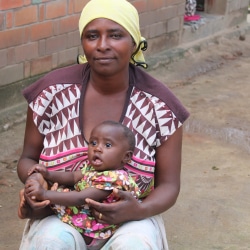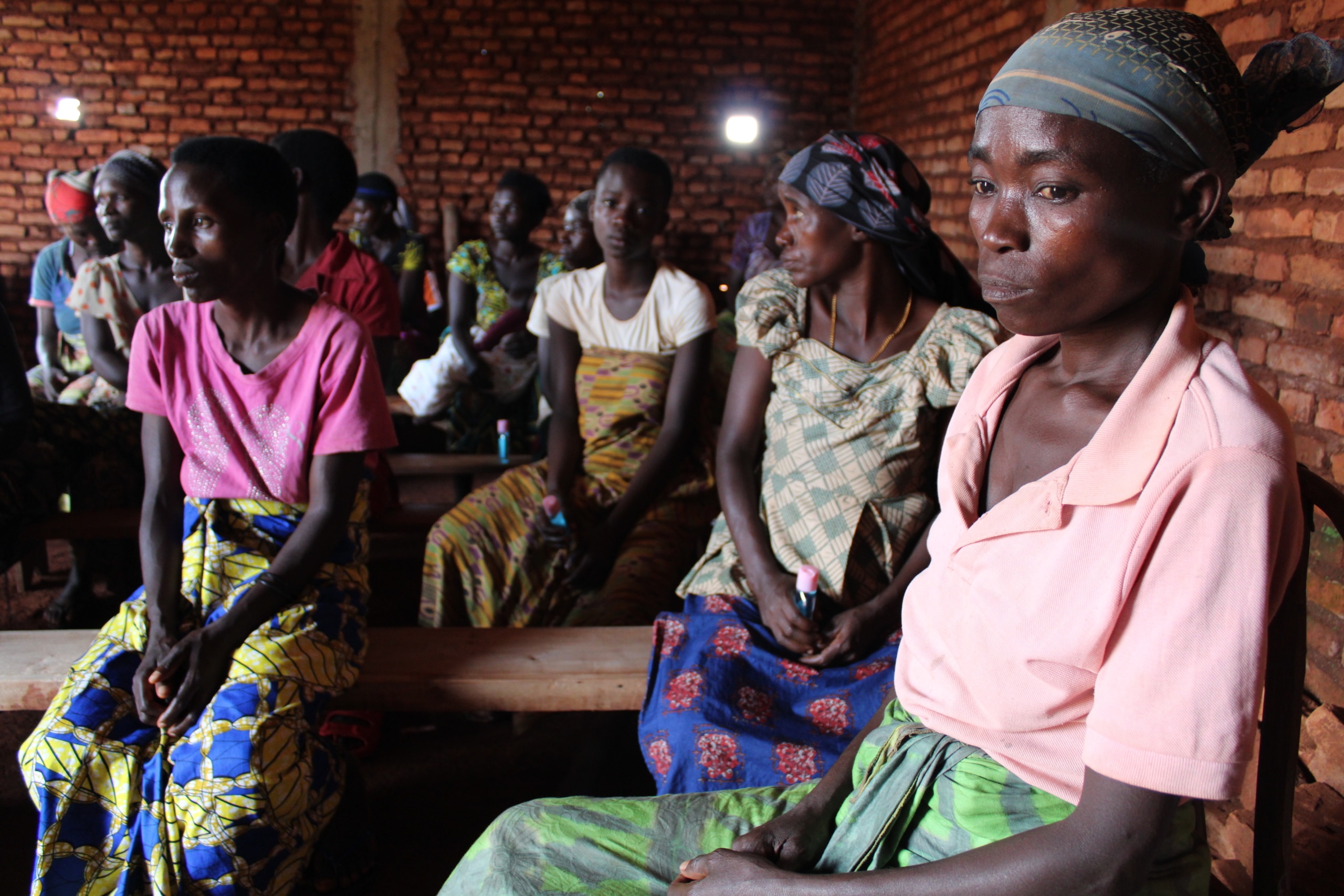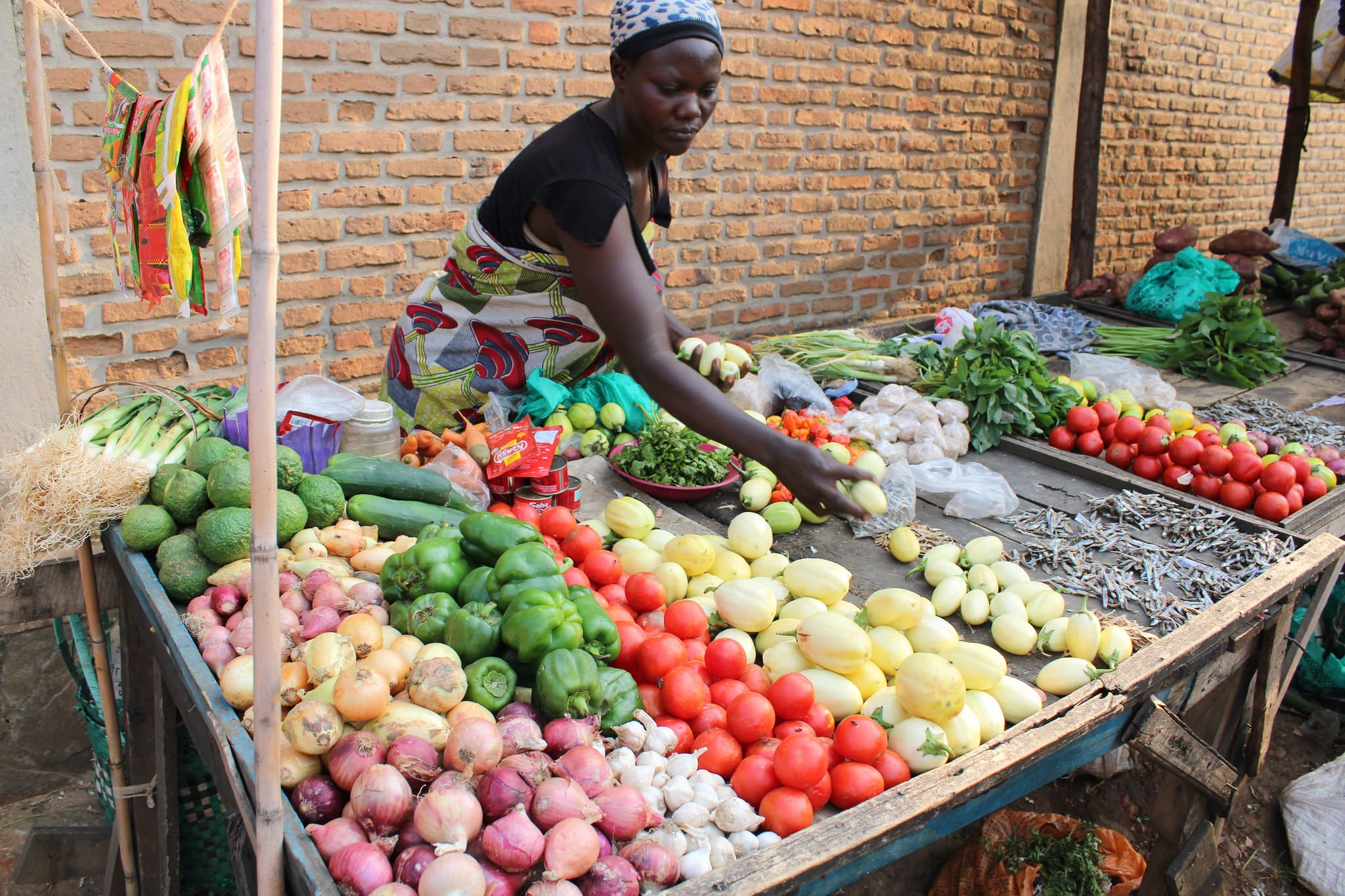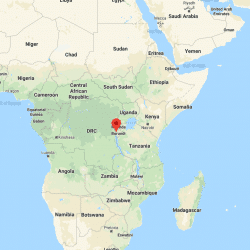
"In Burundi, rural women are the backbone of the household and the beating heart of the economy"
Gisèle Ndereyimana
Gisèle Ndereyimana, director of FXB Burundi, outlines the multiple challenges faced by rural women in this country, the world’s 4th poorest country with nearly 2/3 of its inhabitants living below the poverty line.
With nearly 90% of its population living in rural areas, Burundi is intimately dependent on agriculture and its relationship to the land for its development, growth and the well-being of its inhabitants.
Women, pillars of rural development in Burundi
Representing about 55% of the labor force, Burundian women are the beating heart of the country’s economy, and are particularly active in agriculture, while other sectors, such as construction, remain traditionally reserved for men.
“In Burundi, rural women are the backbone of the household and the beating heart of the economy,” explains Gisèle Ndereyimana, a psychologist by training and director of FXB programs since 2012. “They work, often as domestics, in the fields from morning to night, and can barely enjoy a minute’s rest from the time they get up until they go to bed,” she adds, pointing out that they also have to take care of children, housework and all the other tasks related to the maintenance of the house.
“They leave at dawn with their children on their backs and return in the evening exhausted, still having to take care of water supply for the family, find fuel for the fire – two very heavy burdens – and prepare meals. ” says Gisèle, who, as a psycho-social counselor, has spent her entire career in the NGO sector working with people living with HIV and other vulnerable populations. “The household could not run without them”
Violence and stigma, a daily lot
Nevertheless, the role of rural women in Burundi remains largely underestimated, if not duly ignored to this day: marginalized and stigmatized, they must bow to the decisions of their husbands, who alone have the right to manage money and own plots of land. “They are simply not listened to,” Gisèle notes.
Alcoholism is commonplace among men and domestic violence is extremely widespread, forcing women to live in a climate of constant fear and taking a toll on their children’s psychological and mental health.
The polygamy practiced by many Burundian husbands is another sign of the glaring gender-based inequalities at work. “It is quite common for a man to go and stay with another woman for a while, leaving his wife and children behind; or even to bring another woman back to his main home,” Gisèle explains. This double sword of Damocles – the physical violence and the humiliation of being treated as a mere concubine – “forces many women to spend the night outside the house or in the surrounding banana plantations,” she concludes, telling us the story of a woman, now an FXB beneficiary, who was forced by her husband to go out every night to fetch the stick he would use to beat her.

The right to inheritance, the sinews of war?
Illiteracy, limited access to healthcare and education, lack of decision-making power: the precarious situation of Burundian women is reflected in a thousand ways, all of which are addressed by the VillageFXB economic and community development programs implemented by FXB, mainly in the province of Bujumbura Rural. But another factor could be a game-changer.
According to Burundian law, women are deprived of the right to inheritance. In order to own a piece of land, a stepping stone to self-sufficiency and independence, they would have to buy it – an extremely rare case, given how men retain complete control over household finances. Caught up in discriminatory laws and traditions, women are also collateral victims of a strained socio-economic context.
Traditionally self-sufficient in terms of food production, Burundi’s agricultural sector began to decline in the 1970s and 1980s. The situation only worsened with the conflict that, from the early 1990s to the 2000 Arusha Peace Accords, plunged the country into chaos and misery, increasing food insecurity through the destruction of crops and arable land. Coupled with long periods of drought, over-exploitation and soil erosion, declining agricultural productivity and, above all, the skyrocketing demographic growth that makes it one of the most densely populated countries in Africa, Burundi is facing a scarcity of productive and cultivable land.
An every-day struggle
Faced with this triple barrier of demographic pressure, tradition and the law, “women’s right to inherit land is often seen as a problem rather than a solution,” summarizes Gisèle. One of the most important levers for women’s economic empowerment is therefore relegated to the background, despite a grassroots push from civil society, including FXB, to promote a change of the current legislation.

As the director of FXB programs illustrates, this injustice enshrined in the law has direct consequences on the lives of thousands and thousands of women. “I remember the case of Odile,” she says. “After refusing to sell their plot of land – which, according to the law, should be a collegial decision of the couple – her husband violently attacked her with a knife before leaving to Congo. Overnight, Odile found herself alone, destitute, having to provide for five children. Not to mention that her home was completely washed away and destroyed by the devastating floods of 2018.”
But Gisèle won’t let this story, as tragic as it is sadly common, bring her down. “It is exactly for women like Odile, who are facing every possible type of marginalization, precariousness and stigmatization that we work every day,” she says with sparkling eyes. “Following her integration into the VillageFXB program in Mutimbuzi, Odile received help to rebuild her house and began training that allowed her to develop her own income-generating activity in the sale of foodstuffs, thanks to the seed capital provided by FXB.”
Thanks to a three year support aimed at addressing the predominant drivers of extreme poverty – lack of income, malnutrition, lack of access to health, education, and insalubrity – Odile and her children have turned their life around.
The living proof that, beyond the grand speeches, simply extending a helping hand can prove enough to break the circle of poverty.
